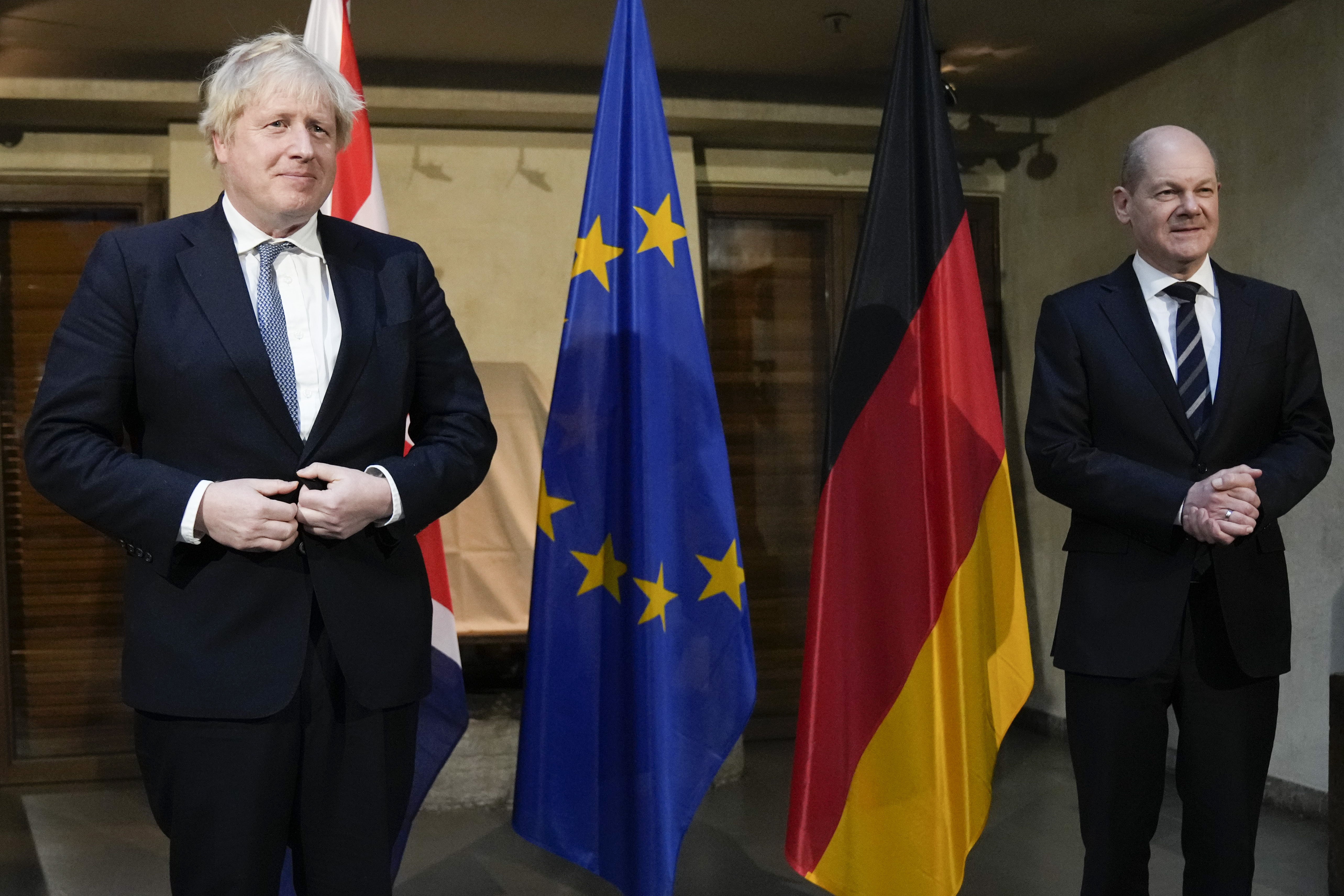Why are EU countries resisting UK calls to boot Russia off the Swift system?
Western leaders remain divided on a key retaliatory move against Russia. Adam Forrest takes a look at the growing row over a major artery of the flow of international finance


The west looks on in horror as Vladimir Putin’s tanks and planes bombard Ukraine. But there are hopes that the Russian economy can be squeezed strongly enough to make the Kremlin reconsider its plans for military conquest.
How tight will the big squeeze be? Can Moscow be shut out of the global financial system? After weeks of talking, western allies are still not aligned. Some European countries – Germany and Italy in particular – remain cool on some of the hottest measures.
The UK government is backing Ukraine’s call for Russia to be excluded from the crucial international payment system called Swift (Society for Worldwide Interbank Financial Telecommunication).
The bank transfer system – based in Belgium – is a key artery of the flow of international finance, allowing the rapid transfer of money across borders. Jointly owned by more than 2,000 institutions, it would require agreement by leading western nations to shut Russia out.
Boris Johnson is backing Ukrainian calls for Russia to be cut off from the system, pressing Nato ministers on the importance of the issue on Friday.
Defence secretary Ben Wallace said Britain would “work all day” to try to get Swift turned off for Moscow. “We want it switched off. Other countries do not. We only have so many options.”
So why are Germany, Italy and others reluctant to push the off button now? Several European leaders fear a ban could make international trade more difficult and hurt their own economies.
A spokesperson for chancellor Olaf Scholz’s government said it would be technically difficult to cut Russia out, and would have a massive impact on transactions for German businesses inside Russia.
Leaders in France and the Netherlands have also said the option should only be used as a last resort. “Countries are hesitant since it has serious consequences for themselves”, said Dutch prime minister Mark Rutter.
The US is also cautious about the move. Joe Biden pointedly played down the need to block Russia from Swift, saying that while it’s “always” still an option, “right now that’s not the position that the rest of Europe wishes to take”.
Some in Washington fear rival transfer systems – such as the Cross-Border International Payments System (CIPS) favoured by China – could gain users in ways that erode the power of the US dollar.
As well as increasing the friction in global commerce, there are concerns that the growth of rival systems could make it harder to monitor the finances of terrorist groups.
Some are scathing about the risk-avoidance, as the bombs rain down on Kyiv. Donald Tusk – the former head of the European Council – said Germany and Italy have “disgraced themselves” by failing to take tough enough sanctions.
Leading sanctions expert Bill Browder told The Independent that denying access to Swift would be “the one thing that would really change Putin’s calculus” – dealing a severe blow to its oil and gas earnings.
It’s not only caution over Swift that is causing anger. The EU has agreed a major freeze on assets and a block on Russian banks’ access to Europe’s financial markets.
But there’s an exemption for Moscow’s main source of revenue – oil and gas exports – which means its banks will still gain lucrative revenues from energy sales.
Mr Johnson’s government has also faced criticism for failing to target enough wealth oligarchs, after he announced more sanctions on only five super-wealthy Putin associates, as well as key defence sector companies.
Mr Browder said: “I would argue the best target is to go after the 50 or so oligarchs who look after Putin’s money in the UK. And the list I saw only included a few oligarchs. From my perspective, that misses the target completely – that’s what Putin cares about most.”
So how much are western nations willing to suffer, economically, to help Ukraine?
Artis Pabriks, deputy prime minister of Ukraine ally Latvia, put it in the starkest possible terms. “Some people in Europe are afraid to lose money while other people in Kyiv have to die. It’s horrible.”
Mr Johnson has promised to embark on a “remorseless mission to squeeze Russia from the global economy, piece by piece, day by day, week by week”.
But as the weeks go by and the Russian tanks roll on, will he and other European leaders be willing to pay the cost?
Join our commenting forum
Join thought-provoking conversations, follow other Independent readers and see their replies
Comments
Bookmark popover
Removed from bookmarks